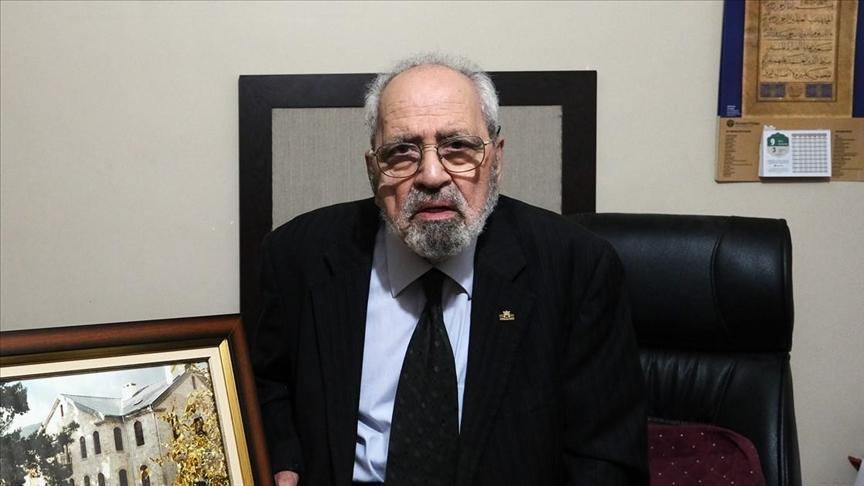
Turkey's prominent poet, writer and intellectual Sezai Karakoç passed away on Nov. 16, the country's presidential spokesperson announced on social media. He was 88.
"Ustad Sezai Karakoç has reached Allah's mercy, leaving behind an exemplary life, a strong fabric of ideas and a great literary legacy," Ibrahim Kalın said. "May Allah make his resting place heaven, his rank high, and his soul happy."
Turkish President Recep Tayyip Erdoğan said he learned about the death of the 'Poet of Resurrection' with "deep sadness," and called him a great thinker in the world of literature and thought "who guided generations with his ideas."
"I offer my condolences to his family, fans and our nation," he wrote on Twitter.
Born on Jan. 22, 1933 in Turkey's southeastern province of Diyarbakır, his father was a merchant captured by the Russians while fighting on the Caucasian front in World War I.
Spending his childhood in Diyarbakır, he went to secondary school in southern Turkish province of Kahramanmaraş, and studied high school in Gaziantep province.
With a keen interest in literature, Karakoç started reading western classics during high school years. He read Western and Eastern classic literature before joining the Ankara University to study political science.
Awaiting result for the entrance exam, Karakoç met Necip Fazıl Kisakürek, another prominent Turkish poet and thinker who had a huge influence on him.
Besides higher education in the 1950s, Karakoç worked at the Büyük Doğu magazine, a conservative political publication founded by Necip Fazıl Kısakürek, and shaped the thinking of many generations.
He graduated from the university in 1955, and started working at Turkey's Finance Ministry.
Starting December 1963, he wrote daily articles for national newspapers, including Yeni İstiklal, Yeni İstanbul and Sabah newspaper in Babıali, the capital of Turkish media at the time.
Karakoç later resigned from the ministry to devote more time to literary studies. He wrote Mona Rosa, which became one of the most famous poems about love in Turkish literature.
In 1990, he founded the Diriliş Party (Resurrection) to realize the world he revealed in his poetry and writings.
He was awarded Turkey's Presidential Culture and Arts Award in 2011.